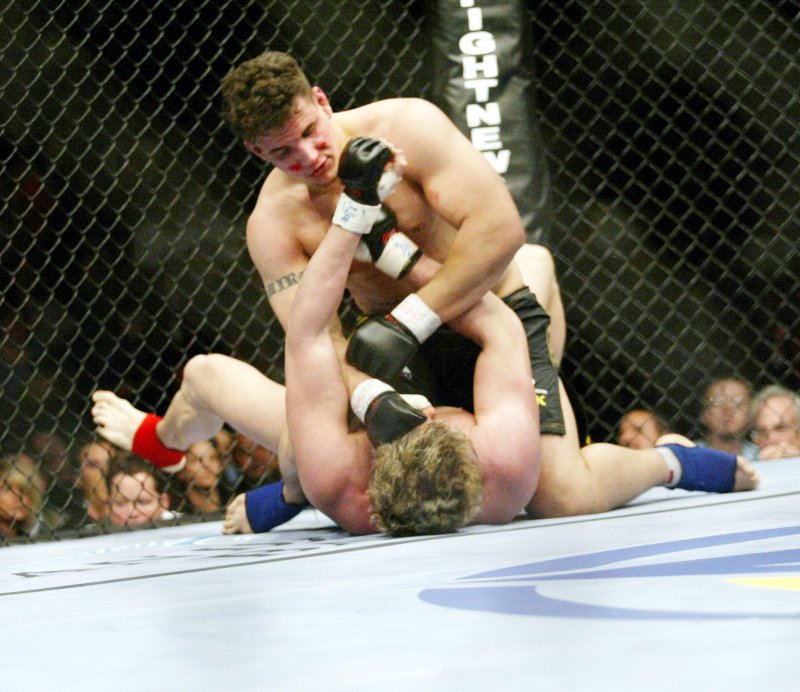An analysis of UFC fights suggests judges are more likely to award victory to aggressive fighters rather than skilled fighters. File Photo by Roger Williams/UPI |
License Photo
Oct. 28 (UPI) -- Often to the chagrin of fans and competitors, wrestling matches, boxing bouts, mixed martial arts and other types of combat competitions are frequently decided by judges.
That's bad news for competitors that rely more on skill than vigor. New research suggests judges are more likely to award victory to aggressive fighters than skilled fighters, all else being equal.
For the study, published this week in the journal Biology Letters, researchers analyzed data collected from 550 men's and women's mixed martial arts contests organized by the Ultimate Fighting Championship.
The data included the percentage of strikes that landed firmly and accurately, a measure of skill, as well as the number of strikes attempted per second, a measure of vigor or aggression.
Regardless of the match conclusion, whether decided by knockout or judges' decision, the data showed the victor was the more vigorous fighter. However, the correlation between vigor and victory was strongest for matches decided by the scores of the judges.
Fighting skillfully wasn't entirely discounted. The data showed addition of skill enhanced the advantage of vigor, but the research showed vigor was the most important factor for fights decided by the judges.
"MMA is a fast paced sport and one of the suggestions from our research would be that judges may find vigor easier to assess than skill," lead author Sarah Lane, postdoctoral research fellow at the University of Plymouth, said in a news release. "That, in turn, leads them to overvalue it when making their decisions, especially in longer fights where one fighter tires more quickly and the disparity in vigor is easier to spot."
"The advance of technology such as instant replays could potentially counter this, but until they are employed more regularly rate of attack is likely to remain the most important performance trait for victory by decision," Lane said.
The research was funded by the Biotechnology and Biological Sciences Research Council, which supports studies focused on the role of skill in animal contests.
Most of Lane's time is spent studying hermit crab fighting, but the authors of the latest paper suggest their analysis of human fights could have implications for understanding physical competitions among animals.
There aren't typically knockouts in fights between rival animals. Often, males joust and tussle to demonstrate their physical dominance to would be rivals and mates. Like in boxing, a competitor's performance is subjective.
"Human combat sports provide a unique scenario in which to explore how performance traits such as skill and vigor are perceived, both by participants and observers," said study co-author Mark Briffa.
"However, because of the obvious communication issues, very little is known about the accuracy with which fighting animals more widely judge the abilities of their rivals," said Briffa, a professor of animal behavior at Plymouth.















